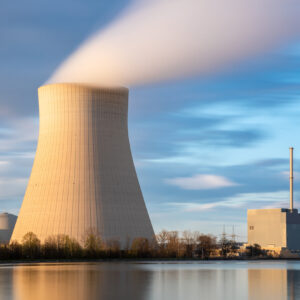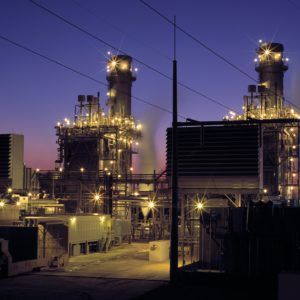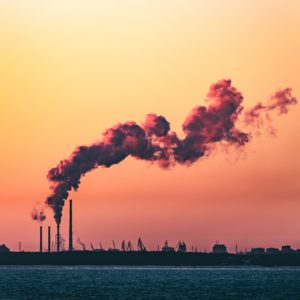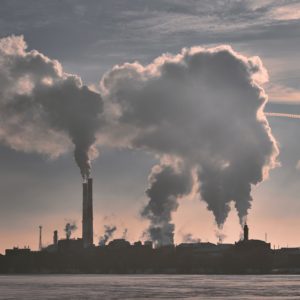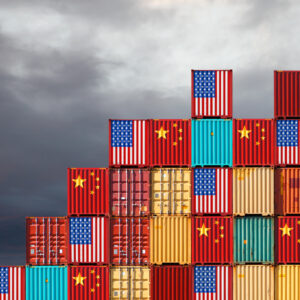China and the U.S. are in a race to create the first grid-scale nuclear fusion energy. After decades of U.S. leadership, China is catching up by spending twice as much and building projects at record speed. Often called the holy grail of clean energy, nuclear fusion creates four times more energy per kilogram of fuel than traditional...
Putin Wants to Sell More Russian Gas to Europe. Can He?
Russian President Vladimir Putin seems confident that pipeline flows of natural gas to Europe could be stepped up if a US-brokered deal to end the war in Ukraine is agreed — raising questions about whether the continent is willing to reverse course and revive that relationship. “If, say, the US and Russia agree on cooperation in the...
Global companies pledge historic support to triple nuclear energy
A cross-industry group of large energy users signed a pledge supporting the goal of at least tripling global nuclear capacity by 2050. This is the first time major businesses beyond the nuclear sector have come together to publicly back an extensive and concerted expansion of nuclear power to meet increasing global energy demand. They also urge other...
HD Hyundai, TerraPower team up to strengthen SMR supply chain
HD Hyundai and TerraPower have joined hands to bolster the global manufacturing supply chain for the latter’s Natrium reactors and accelerate the commercialization of advanced nuclear power technology, the two companies announced Wednesday. According to the announcement, the collaboration will combine HD Hyundai Heavy Industries’ manufacturing expertise with TerraPower’s reactor technology and increase supply chain...
South Korea and US to form working group on Alaska LNG project, tariffs
South Korea and the United States have agreed to establish a working-level group to discuss a gas pipeline project in Alaska, energy, shipbuilding, tariffs and non-tariff barriers, South Korea’s Industry Minister Ahn Duk-geun said on Tuesday. The United States has asked South Korea and other countries if they are interested in participating in an Alaskan...
Don’t Let This Be America’s ‘Germany Moment’ on Energy
The attempt to force an economically foolish energy transition onto its people turned Germany from global envy into a cautionary tale. The U.S. must heed the warning—if Congress and the administration fail to fix America’s broken regulatory process, America’s energy dominance and economic prowess could suffer a similar fate, with similar political consequences.
Orlen and Equinor agree to develop carbon capture projects
Polish refiner Orlen (PKN.WA) and Norway’s Equinor (EQNR.OL) signed on Monday a memorandum of understanding (MoU) on the development of carbon capture and storage (CCS) projects. The documents were signed by Irene Rummelhoff – Executive Vice President at Equinor, and Wieslaw Prugar, Orlen management board member in charge of upstream. Under the memorandum, Orlen and Equinor will...
King coal to stay top in India despite big clean power pipeline
India has the second-largest clean power capacity development pipeline globally after China, with nearly 56,000 megawatts of new renewables, hydro and nuclear capacity under construction. Clean energy sources account for two-thirds of the all the new power capacity under development in India, according to Global Energy Monitor (GEM) data, and will result in a 35%...
Chinese Manufacturers Speed Up Efforts to Dodge Trump Tariffs
After the Trump administration put a new 10% tariff on Chinese products earlier this month, Agilian Technology, an electronics manufacturer in China, pressed forward with its plan to avoid additional levies. In the run-up to last year’s election, Agilian grew worried that the U.S. would introduce new tariffs if Donald Trump returned to the White House, and one of...
Korea Cancels Planned Reactor After Impeaching Pro-Nuke Leader
South Korea has scaled down its plans for nuclear power after the impeachment of President Yoon Suk Yeol, an atomic energy advocate, gave the opposition party greater influence over the country’s long-term energy policy. The Asian nation expects to add a total of 3.5 gigawatts of nuclear capacity by 2038, according to a government plan finalized...


